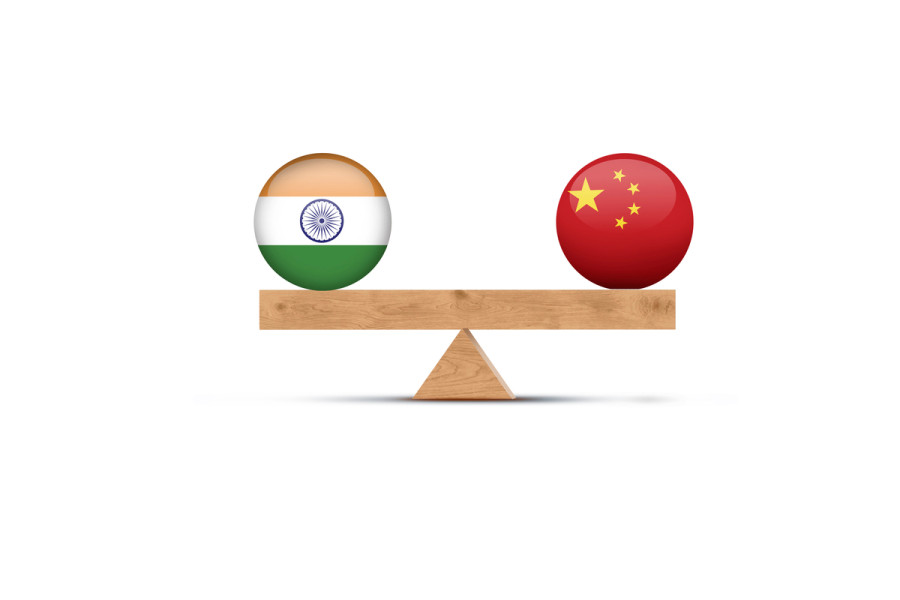Columns
Policy interrupted
Rather than non-alignment, Nepal’s foreign policy represents a lack of continuity.
Amish Raj Mulmi
Imagine a world where the United States, after the resignation of president Richard Nixon in 1974, suddenly decided Washington would withdraw from its rapprochement with China because of domestic pressures. Or if, in 2014, the newly- elected Narendra Modi government decided its predecessor’s change in Nepal policy—from the twin pillars of supporting the constitutional monarchy and multiparty democracy to republicanism—was no longer feasible. Or if successive Indian and British governments swung around on the recruitment of Gurkhas, introducing new rules depending on domestic politics. If these sound like a heady mix of chaos and uncertainty, then let me assure you this is how Nepal’s way of doing business looks from the outside.
Continuity is a pillar of governance. But in Nepal, policy continuity is thrown to the winds. A new government—and we get a lot of them—usually cancels contracts awarded by its predecessor, or recalls ambassadors and shuffles bureaucrats around, or is seen as swaying to one side or the other depending on the prime minister’s allegiances. A new train was procured at a cost of Rs850 million, but in the absence of laws—not infrastructure—it sits idle, thus offering us an extraordinary insight into the bureaucratic mindset: "Laws are a must. Without laws, we cannot operate the trains." New aircraft are inducted into the national airline fleet without checking if Nepal has the capability to fly them. The loss to the exchequer aside, no one is surprised when they cannot fly.
The mixed signals Nepal sends out is most visible in its foreign policy. The loser is the Nepali public. The interminable patience of international actors to engage with the political class on the latter’s terms is commendable, but surely the tap will run dry some day. Until then, Dashain is an everyday affair if one finds themselves ensconced in Singha Durbar.
Foreign policy swings
I’m often asked why Nepal’s foreign policy swings from one side to the other, and about the influence of external actors on our policy choices. My answer usually remains the same: Our political actors provide the space for external players to influence our policy decisions. This model of governance isn’t new or unique to Nepal; most least-developed countries (LDCs) suffer from this syndrome which is also one of the outcomes of aid dependence. Where Nepal differs is the spectre of "foreign interference", especially from our neighbours, which our leaders love to play up to the crowds.
Although Nepal has long tried to play the China card to balance out India, it is only in the 21st century that China has built the capability and the infrastructure to challenge India’s preeminent position in the country. My contention is that Nepal’s approach to China is predicated on an anti-Indian stance. Since Nepali nationalism’s primary plank is to oppose Indian overtures no matter what the outcome, we veer towards China to supposedly "balance" out India. Such an approach, however, will never allow Nepal to realise the full potential of its relationship with China, and neither will it assist in expanding upon the bilateral relationship we have with India. For instance, consider KP Sharma Oli who rose to power on an anti-Indian plank, signed multiple agreements with China and brought out a new political map. When internal party troubles weakened his position, he veered towards Delhi, whom he assured that others forced him to issue the map. Now that he is out of power, he is back to raising the old bogey of Indian intervention.
Such manoeuvring is not new. In the 1950s, revolutionary leader KI Singh, who once compared his flight to Tibet after an attempted coup to the Long March and was an ardent China supporter, veered towards India upon his return from China "to the astonishment of the Nepali public", as Leo E Rose wrote in Nepal: Strategy for Survival. Our kings were not too far away from the action. King Mahendra dissolved the Tanka Prasad Acharya government in just one and a half years as "Nepal may have gone too far too quickly in expanding relations with China" and appointed the vocal Singh, whose government didn’t last very long either. Perhaps one can suggest, as Rose does, that Mahendra’s manoeuvres were an attempt to diversify and balance out Nepal’s foreign relations in a delicate international period. But the truth remains that rather than non-alignment, vacillation has been the hallmark of our foreign policy.
Unusual episodes
In the recent past, there has been a tendency among new governments to ensure they do not appear overly pro-India, especially post the 2015 blockade. But this has also given rise to unusual episodes that have harmed Nepal’s interests. For example, although traders and bureaucrats have regularly raised the issue of erratic movement of goods across the land border with China, neither Oli nor Sher Bahadur Deuba has prioritised the issue. On the other hand, by sending across a diplomatic note asking India to investigate the role of its border force in the Jaya Singh Dhami episode, the current Deuba government has indicated it remains a "nationalist" government that isn’t aligned towards India. But there’s a larger concern brewing. The committee reconstituted to look into alleged Chinese border encroachments in Humla has found that "some boundary pillars... were repaired and fenced without the knowledge of the Nepali side". While the challenge will be to get China to agree to a bilateral fact-finding mission, Nepal’s case has already been weakened by the previous foreign minister who rushed to suggest all was well without an official confirmation.
The other factor that weighs heavily on Nepal’s foreign policy is domestic politics. Oppositional politics has come to mean swaying the narrative by means of public protests, as we saw in the demonstrations against the Millennium Challenge Corporation compact (MCC). Disinformation has become the weapon of choice. And because our media directly reports whatever our leaders blurt out—without providing any contextual information about the statement—our public debates have come to lack critical analysis. Nepal’s failure to ratify MCC—whether because of domestic opposition or other concerns—will send out another signal that Kathmandu cannot be trusted.
As with domestic policy, Nepal’s foreign policy has become a hostage to our longstanding culture of patronage. National interests are secondary to leaders’ interests, and as long as this remains the scenario, any hopes of policy continuity will be futile.




 10.12°C Kathmandu
10.12°C Kathmandu















